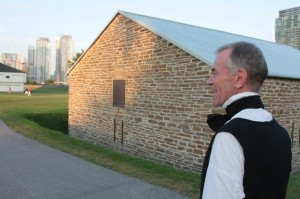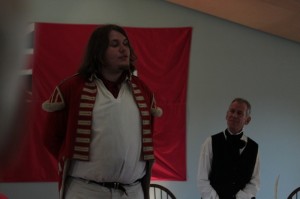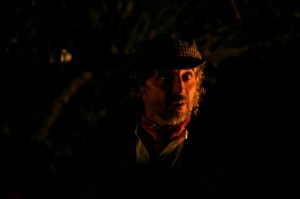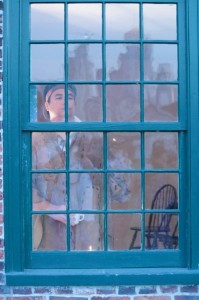Written By Rick Salutin
August 10 to 22 at Fort York, 100 Garrison Rd.
By Beth Macdonell
On now through Aug. 22, Festival at the Fort presents Great Voices, a play that tells the story of the Battle of York during the war of 1812 between America and British Canada.
Written by columnist and author Rick Salutin, Great Voices is an enriching and fun journey into one of the most violent periods between the Yankees and the Canucks.
Arriving at the fort, the audience is encouraged to stroll through the grounds before taking their seats on benches by the campfire. As you listen to bagpipes clash with the city soundscape and admire two centuries-old British military buildings, the play begins. The audience is told to “forget the Gardiner, forget the sounds of traffic.”
Instead, you are to imagine it’s the spring of 1813, and America has just decided to attack.
Seems hard to imagine, given the massive condos, billboards, and highways that surround the national heritage site today, but Great Voices, as it turns out, gives an educational and entertaining portrayal of the attack and the era.
For over 90 minutes, the audience is guided outdoors around the fort where they are introduced to giant puppets, music, and plenty of humour, including a rendition of a song called “Stew Again,” mocking the monotony of the soldiers’ diet.
A mixed native and white cast tell stories that give detailed information on famous historical events. One informs the audience of the alliance between Sir Isaac Brock and Tecumseh, the leader of a large native confederacy, that caused the American base at Fort Detroit to surrender.
Leuitenant-Govenor John Graves Simcoe discusses introducing the first piece of legislation which moved to abolish slavery in the British empire.
Simcoe established York in 1793. He feared an attack from the United States, and felt Niagara, the former capital of Upper Canada, was situated too close to the U.S., and eventually choose Fort York because of its strategic location.
At the time, Toronto Islands still formed a peninsula, creating what was then called Toronto Bay, which Simcoe saw as a natural protective barrier in case war broke out. To the south, the old walls that surround the fort mark the original coastline of the city.
When the war came to York, it was still a small town of about only 1,500 residents. The play pokes fun at what it was like living in York at the time, being surrounded by thick woods and flurries of mosquitoes – a distant memory of the now expansive urban sprawl.
There was only one day of fighting at Fort York. The Americans captured the site quickly. Both barracks were destroyed. One by the American fighters, the other by a smouldering fire left burning by the militia that defended the fort. The barracks were rebuilt a year later in 1814. The parliament was also burned down.
Great Voice is well orchestrated through the different scenes, moods and locations. The play was able to integrate and engage the audience without distracting the audience away from the history.
The cook, played by James Gordon wins my vote for favourite character in the play. He researched and wrote the songs, performing them with spunk and enthusiasm. Simon Richards played the powerful British men in the story. He brought out the surprising introspective nature to which these characters were given. Tecumseh was evocative and emotional. The host, Hendrick Bruyn, lead the audience with energy and wit. My only criticism is that the performance was very male centric lacking a strong female role on either the Native, British or American sides. It would have been interesting to learn how the women of York were living.
Go see Great Voices to buff up on your history in advance of the war’s 200th anniversary in 2012 and learn about the birth of Toronto. It’s a wonderful opportunity to interact with the past and present in a creative unique way.
Photos by Sean Baker




